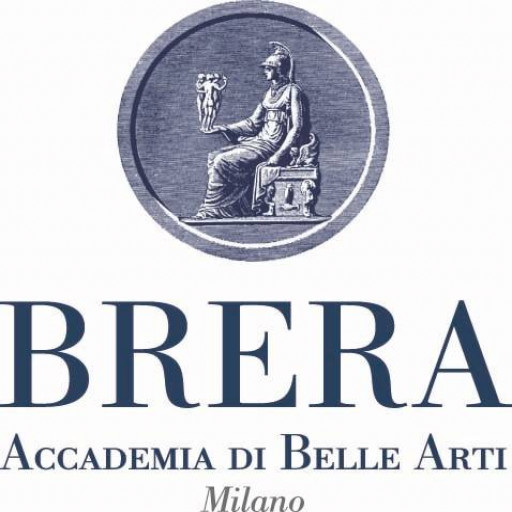Photos of university / #oxford_uni
Description: The MSc in Film Aesthetics at the University of Oxford offers a comprehensive exploration of the visual and stylistic elements that define cinema as an art form. Designed for students with a keen interest in film theory, history, and criticism, this programme delves into the analysis of film techniques, narrative structures, and aesthetic concepts across different periods and cultures. Participants will engage with critical debates surrounding genre, representation, and spectacle, while also examining the technological advancements that have shaped modern filmmaking. Through a combination of lectures, seminars, and independent research, students will develop a nuanced understanding of how aesthetic choices impact viewer perception and meaning. The curriculum includes modules on film history, theoretical frameworks, and practical analysis, encouraging both scholarly inquiry and creative reflection. Students will have access to a range of academic resources, including film archives, digital media laboratories, and sessions with leading experts in the field. The programme aims to prepare graduates for careers in academia, film criticism, curation, or media production, equipping them with analytical skills and aesthetic awareness applicable across a variety of professional contexts. Graduates will also benefit from Oxford's vibrant scholarly community, participating in conferences and publishing opportunities that foster rigorous intellectual engagement. Overall, the MSc in Film Aesthetics provides a rigorous, interdisciplinary approach to understanding the art and science of visual storytelling, fostering both critical insight and innovative thinking in the realm of contemporary cinema.
The MSt in Film Aesthetics is degree in the humanities run jointly by the faculties of Modern Languages, English, and Philosophy.
The course concentrates on film from the point of view of aesthetics, including:
- the detailed study of film style and form, and the articulation of it in writing - for example, narrative structure, use of camera, colour, performance, sound, music, editing and composition;
- matters of philosophical aesthetics, and their particular application to film such as value and evaluation, appreciation, ontology, medium, intention, expression, meaning/interpretation, creativity, beauty, metaphor, symbolism, fiction, storytelling, convention, stylistic groupings and histories, emotion, imagination, and the relation between ethics, morality and aesthetics; and
- classic and contemporary film theory and film-philosophy as they relate to film aesthetics: film specificity, spectatorship, modernism, phenomenology, affect, and the work of film philosophers such as Hugo Munsterberg, Rudolph Arnheim, Gilles Deleuze and Stanley Cavell.
Many master's programmes concentrate on historical, cultural, geographical, or political approaches to film and may only contain an aesthetic component. This programme is dedicated to the specialist study of film aesthetics.
The course runs from late September to June, from two weeks before the first term to the end of the last term.
Two weeks before term officially begins, you will attend a practical film workshop for one week. Although the degree itself is not practical, this week acts as an introduction to film techniques and allows the group to work with each other before the degree begins. This part of the course is not assessed.
In the first two terms the course is taught by seminar only, although there will be individual meetings with tutors to discuss essay preparation and feedback. In the third term the course is taught by individual supervision.
The first term of the course will look at the analysis of film style and film form, train techniques of film analysis and look at key concepts in film form, film criticism, film theory and film-philosophy.
The second term consists of four short segments, each covering a particular aesthetic topic. This part of the course provides you with the opportunity to engage with four different areas of specialisation.
The topics for the second term change from year to year but may include:
- film and phenomenology
- aesthetics of Italian cinema
- spaces of American cinema (eg the invaded home)
- film and modernism
- contemporary theories of spectatorship - embodiment, ethics and politics
- cinema of the non-human
- the film-philosophy of Stanley Cavell
- contemporary Chinese cinema
In both the first two terms there will be four different modules each lasting four seminars (eight modules in total across the terms). In both these terms there will be two seminars per week. Seminars vary in length depending on the module (90 minutes to three hours). In the third term there will be individual tutorial supervision of the dissertation. You will be expected to read quite extensively for seminars and supervisions, and also view films. All the staff involved in delivering the course have doctoral degrees (most are at professorial or associate professorial level), in many cases are leaders in their fields and have extensive experience of teaching their area of film studies.
Assessment is by two 6,000-word essays, one 3,000-word essay and a 10, 000-word dissertation. The dissertation, written in the final term, provides an opportunity to work with a tutor in your chosen area of specialisation.
Applicants are normally expected to be predicted or have achieved a first-class or strong upper second-class undergraduate degree with honours (or equivalent international qualifications), as a minimum, in the humanities, fine art or social sciences.
However, entrance is very competitive and most successful applicants have a first-class degree or the equivalent.
For applicants with a degree from the USA, the minimum GPA sought is 3.7 out of 4.0.
If you hold non-UK qualifications and wish to check how your qualifications match these requirements, you can contact the National Recognition Information Centre for the United Kingdom (UK NARIC).
A formal background in film studies is not a requirement, and many successful applicants do not have a film studies degree; however, high achievement in the field of film studies is desirable. You should also show an interest in, and if possible a knowledge of, aesthetics, and more specifically the aesthetics of film.
No Graduate Record Examination (GRE) or GMAT scores are sought.
Other appropriate indicators will include:
- Official transcript(s)
- CV/résumé
- Statement of purpose/personal statement:500 words
- References/letters of recommendation:Three overall, of which at least two must be academic
The financing of the Film Aesthetics program at the University of Oxford is primarily supported through a combination of tuition fees, bursaries, scholarships, and external funding opportunities. As a prestigious institution, Oxford offers a range of financial aid options to assist both domestic and international students in managing the costs associated with their studies. Tuition fees for the program are set annually and vary depending on the student's home country and residency status. International students typically pay higher fees than UK residents, reflecting the university's standard fee structure. In addition to tuition fees, students are encouraged to apply for various scholarships offered directly by the university or through external organizations. These scholarships may be merit-based, need-based, or targeted towards specific student demographics or fields of study, including arts and humanities disciplines like film studies.
Oxford also provides access to bursaries and grants that can significantly reduce the financial burden on students. These funds are often awarded based on financial need and are designed to ensure that talented students from diverse backgrounds can access their programs regardless of economic circumstances. Furthermore, many students seek external funding sources, such as government loans, private sponsorships, or grants from cultural and arts foundations dedicated to supporting film and media studies. Part-time work opportunities within the university, such as research assistantships or teaching roles, are also available to eligible students to supplement their income while pursuing their degrees.
The university’s extensive alumni network and partnerships with industry professionals may offer additional financial support in the form of internships, scholarships, or grants. Professional development funding can sometimes be obtained through industry collaborations, fostering a sustainable pathway for students to finance their education and transition into careers in film, media, or related fields. Students are advised to consult the university’s official financial aid office early in their application process to explore all available options and to receive guidance tailored to their individual circumstances.
Overall, the financial landscape for the Film Aesthetics program at Oxford aims to make the world-class education accessible and affordable for deserving students, with a comprehensive suite of financial support mechanisms designed to mitigate costs and encourage diverse participation in the arts and media fields.
The Film Aesthetics program at the University of Oxford offers students an in-depth exploration of the visual and stylistic elements that define cinema as an art form. Designed for individuals interested in understanding how film language conveys meaning, emotion, and cultural context, the program combines theoretical approaches with practical analysis. Students examine key concepts such as mise-en-scène, mise-en-cine, editing techniques, cinematography, lighting, color theory, and sound design, which collectively shape the aesthetic experience of film. The curriculum includes studying a broad range of films from different countries and genres, providing a global perspective on cinematic styles and trends.
Participants are encouraged to develop critical viewing skills, learning to analyze films not only for their storytelling but also for their artistic and technical qualities. The program emphasizes the historical evolution of film aesthetics, from the silent era to contemporary digital cinema, helping students understand how technological advancements and cultural shifts influence aesthetic choices. Students may have opportunities to engage in practical coursework such as film analysis projects, presentations, and possibly short film production, fostering both academic and creative skills.
The faculty comprises experts in film studies, including scholars who have published significant research on film theory, history, and aesthetics. The university's resources include access to extensive film archives, libraries, and screenings, which enrich the learning experience. Graduates of the program are prepared for careers in film criticism, curation, academia, filmmaking, or other creative industries related to visual arts and media. The interdisciplinary nature of the program enables students to connect film aesthetics with broader cultural, philosophical, and technological themes, making it a comprehensive course for anyone passionate about the art of cinema.







